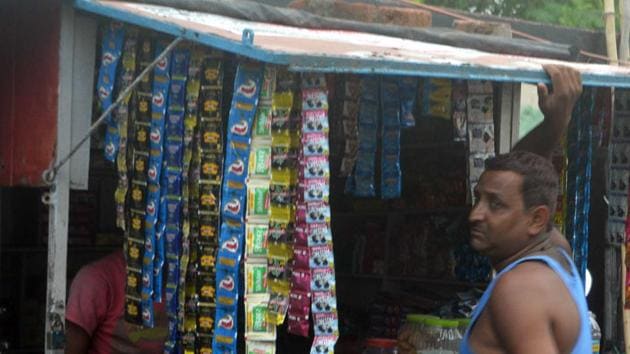Cancer can be defeated if we work together, writes Devendra Fadnavis
When it comes to the fight against cancer, Maharashtra is at the forefront
Maharashtra witnesses approximately 1.3 lakh new cancer cases annually, and ranks second nationally in incidence, behind Uttar Pradesh. The Tata Memorial Hospital (TMH) alone receives 40,000 new cases every year from across India. Further, the mortality due to cancer remains excessively high with deaths in up to half of the reported cases. The government of Maharashtra has made it a priority to develop and implement a comprehensive cancer control plan with several partners such as the National Cancer Grid (NCG), the TMH and Tata Trusts.

The prevention and early diagnosis of cancer remains the key, as the National Health Policy 2016 also identifies. Realising this, in December 2017, Maharashtra launched an ambitious month-long oral cancer detection programme which involved training doctors, creating massive awareness and engaging partners such as Rotary Club and Lion’s International as well as Indian Medical and Dental Associations. Screening 20 million citizens, 300,000 individuals were diagnosed with pre-malignant conditions and referred to district hospitals for further management. This systemic endeavour as part of the NPCDCS programme will continue rigorously, further exploring the integration of the AYUSH network through appropriate training.
Head and neck cancer are the commonest in Maharashtra, with tobacco products being the most important risk factor. In fact, tobacco in one form or the other remains the risk factor in 30-40% of all cancer cases. Hence using the full force of the regulatory powers for cancer prevention, Maharashtra became one of the first states to ban gutka products as well as selling tobacco and FMCG products under one roof. The results are encouraging as the Global Adult Tobacco Survey 2 shows. But 6% of the youngsters in the age group of 15-17 consume tobacco. Hence Maharashtra will continue the sustained enforcement of the COTPA Act, 2003.
But what about the treatment of patients? Especially in the rural parts of the state? I am delighted to declare that Maharashtra became the first state in the country to partner through the Public Health and Medical Education Departments with the NCG and Tata Trusts to develop a comprehensive cancer control plan. Maharashtra established the first state chapter of NCG, under which all Government Medical Colleges (GMC) are partnering with TMH to create trained human resources through a fellowship programme for doctors, nurses and technicians. Maharashtra also became the first state where all GMCs receive weekly training through a technology-enabled Virtual Tumour Board (VTB). VTB is a unique solution, comprising a multi-disciplinary team of leading oncology professionals across the country, providing expert opinion on complicated cancer cases and enables even the remotest parts of the state to have access to them.
TMH has also reached out to its former students working across Maharashtra, who have formed a voluntary group of doctors called Maharashtra Cancer Warriors (MCW). In the past two years, these 52 MCWs have provided free services through the district hospitals to more than 16,000 OPD and 5,500 IPD cases as well as have performed 1,150 cancer surgeries in 29 districts. This is a truly a shining example of professional social responsibility.
At the same time, to support such dedicated human resources, Maharashtra is investing in developing infrastructure for cancer care. The efforts include establishing the State Cancer Institute at Aurangabad and Nagpur.
While efforts to create infrastructure and human resources through the public facilities continue, the financial burden due to out-of-pocket expenses for cancer treatment remains astronomical. Hence, the critical role of Mahatma Jyotiba Phule Jan Arogya Yojana, the state health insurance scheme which functions through its approximately 500 empanelled hospitals including in the private sector. In these facilities, the patients from the economically weaker sections of the society are entitled to avail cashless services up to a limit Rs. 1.5 lakh per family per year. Considering that cancer surgeries remain the most availed service under this scheme, the government continues to explore the inclusion of other cancer-related procedures in this. The Chief Minister Relief Fund remains one of the key sources for providing emergency financial assistance to patients in need of cancer treatment and the overall relief distributed has been 57 times that in the previous regime.
These experiences have convinced me that cancer can only be defeated through the collective forces of all the stakeholders. The Health and Medical Education Ministers of Maharashtra, Secretaries and the entire medical and public health staff have demonstrated exactly this, through their incessant efforts and proactive partnerships with philanthropic organisations. I feel privileged to lead this movement which demonstrates that with the pooled strength of science and indefatigable human spirit, we can eliminate cancer for today’s and the generations to come.
“Cancer is a word, not a sentence” - John Diamon
Devendra Fadnavis is the chief minister of Maharashtra
The views expressed are personal






